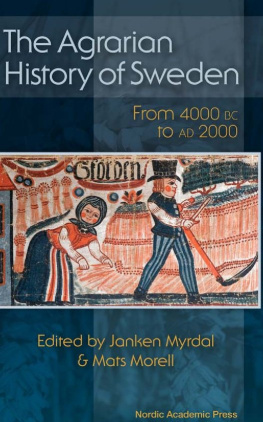Walter A. Jackson - Gunnar Myrdal and Americas Conscience
Here you can read online Walter A. Jackson - Gunnar Myrdal and Americas Conscience full text of the book (entire story) in english for free. Download pdf and epub, get meaning, cover and reviews about this ebook. year: 1994, publisher: The University of North Carolina Press, genre: Politics. Description of the work, (preface) as well as reviews are available. Best literature library LitArk.com created for fans of good reading and offers a wide selection of genres:
Romance novel
Science fiction
Adventure
Detective
Science
History
Home and family
Prose
Art
Politics
Computer
Non-fiction
Religion
Business
Children
Humor
Choose a favorite category and find really read worthwhile books. Enjoy immersion in the world of imagination, feel the emotions of the characters or learn something new for yourself, make an fascinating discovery.

- Book:Gunnar Myrdal and Americas Conscience
- Author:
- Publisher:The University of North Carolina Press
- Genre:
- Year:1994
- Rating:5 / 5
- Favourites:Add to favourites
- Your mark:
- 100
- 1
- 2
- 3
- 4
- 5
Gunnar Myrdal and Americas Conscience: summary, description and annotation
We offer to read an annotation, description, summary or preface (depends on what the author of the book "Gunnar Myrdal and Americas Conscience" wrote himself). If you haven't found the necessary information about the book — write in the comments, we will try to find it.
Gunnar Myrdal and Americas Conscience — read online for free the complete book (whole text) full work
Below is the text of the book, divided by pages. System saving the place of the last page read, allows you to conveniently read the book "Gunnar Myrdal and Americas Conscience" online for free, without having to search again every time where you left off. Put a bookmark, and you can go to the page where you finished reading at any time.
Font size:
Interval:
Bookmark:
All rights reserved
Manufactured in the United States of America
Jackson, Walter A.
Gunnar Myrdal and Americas conscience : social engineering and
racial liberalism, 19381987 / by Walter A. Jackson.
p. cm.(Fred W Morrison series in Southern studies)
Includes bibliographical references.
ISBN 0-8078-1911-5 (alk. paper)
1. United StatesSocial conditions19331945. 2. United StatesSocial conditions1945 3. Myrdal, Gunnar, 1898 American dilemma. 4. Race discriminationUnited StatesHistory20th century. I. Title. II. Series.
HN57J246 1990
306.0973dc20
9012015
[0904]
CIP
and for my father
- Anna Sofia Sofie Pettersson
- Carl Adolf Pettersson
- Gunnar Myrdal as a gymnasium student
- Gunnar Myrdal as a student at the University of Stockholm
- Gunnar and Alva, shortly after they met
- Gunnar and Alva in their futuristic house
- The Myrdal family embarks for the United States
- Gunnar and Alva with Ralph Bunche
- Ralph Bunche
- Sterling Brown
- Gunnar Myrdal writing An American Dilemma
- Gunnar Myrdal relaxing
- Alva and Gunnar after their return to Sweden
- Gunnar Myrdal, as minister of trade, with Prime Minister Tage Erlander
- Ambassador Alva Myrdal with Indias prime minister, Jawaharlal Nehru
- Gunnar Myrdal, with Olof Palme and Ngyen Tho Chyan, demonstrating against the Vietnam War
- Kenneth Clark, with Alva and Gunnar
- Gunnar Myrdal receives the Nobel Prize for economics
- Gunnar and Alva in their apartment in Stockholms Old Town
- Alva Myrdal
- Gunnar, with daughter Sissela Bok and Bishop Krister Stendahl, at memorial service for Alva
Font size:
Interval:
Bookmark:
Similar books «Gunnar Myrdal and Americas Conscience»
Look at similar books to Gunnar Myrdal and Americas Conscience. We have selected literature similar in name and meaning in the hope of providing readers with more options to find new, interesting, not yet read works.
Discussion, reviews of the book Gunnar Myrdal and Americas Conscience and just readers' own opinions. Leave your comments, write what you think about the work, its meaning or the main characters. Specify what exactly you liked and what you didn't like, and why you think so.






